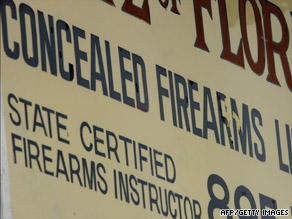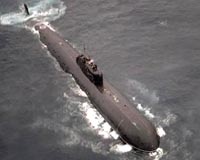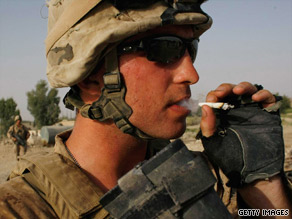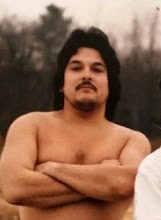Tuesday, July 28, 2009
India's New Triad
They now have the capability to strike at their enemies (Pakistan) so far, with air, land and sea launched nuclear missiles, if they so choose. Of particular interest in the acquisition of a Russian Sub, a Russian aircraft carrier and the building of their own Nuclear boat, is the means to which they will utilize them in defense of Indian interests. Surely, the buildup of Chinese naval forces and their intent on purchasing/ leasing an Aircraft carrier from Russia is of concern.
We'll see as to the effect the buildup of India's and China's military will bring about more discord or maybe they will become more protectionist. Chinese interests in Africa are growing and their overall influence in the region, may require a harder stance from either country. ... lakotahope
Wednesday, July 22, 2009
Senate Says NO To Carrying Concealed Weapons Across State Lines
I'd like to see the Federal statutes dealing with marijuana possession scrapped. They are in the same category as cocaine and heroin. Hardly comparable, but still, one can get jail and prison time just like the 'Crackheads'. ... lakotahope
WASHINGTON (CNN) -- The Senate narrowly rejected a measure to allow people to carry concealed weapons from state to state Wednesday.

A Miami, Florida, gun store offers concealed weapons training.
The vote was 58 to 39. The amendment needed 60 votes to pass.
The measure would have required each of the 48 states that allow concealed firearms to honor permits issued in other states.
It was the first significant defeat this year for the gun lobby.
The concealed weapons proposal was an amendment to a larger defense appropriations bill, introduced by Sen. John Thune, a South Dakota Republican.
Supporters of the measure argued it would help deter criminals; opponents claimed it would endanger innocent people by effectively forcing most of the country to conform to regulations in states with the loosest gun ownership standards.
Sen. John Barrasso, a Wyoming Republican who is a co-sponsor of the amendment, argued Wednesday that gun licenses should apply across state lines, like driver's licenses.
"People travel," he said on CNN's "American Morning."
"We have truck drivers on our roads, people traveling for vacation in their vehicles, and if you have a license... you should be able to use that license in other states. It should apply like a driver's license," he said.
He argued that concealed weapons deter crime.
But Republican Michael Bloomberg, the mayor of New York City and an opponent of the law, said the proposed amendment would trample on states' rights.
"Wyoming shouldn't be subject to New York state laws, and we're going in that direction," he said. "What's right for the people of Wyoming isn't necessarily right for the people of New York and vice versa."
Bloomberg insisted that guns do not make people safer.
"There's no evidence that if you have a gun, you're safer. Quite the contrary. If you have a gun at home, [you are] something like 20 times more likely to have somebody in your house killed," he said on "American Morning."
"We have to protect our policemen, protect our citizens. We can't have all these guns, and it's reasonable to have each state make their own laws," he said.
The issue has blurred Capitol Hill's usual partisan lines. Senate Majority Leader Harry Reid, a Nevada Democrat, is one of several Southern and Western Democrats who supported the measure. Others Democrats opposed it.
Before this vote, gun control advocates faced a setback when President Obama signed a credit card bill that included a provision allowing people to carry guns in national parks.Thursday, July 16, 2009
Supreme Court Nominee Learned Ropes as a Prosector
No!, personality, determination, and maybe 'righteous' feelings drive one to be so determined to see the 'dregs' of society. So be it. But, I guarantee you one thing........IF SOTOMAYER HAD SAID "WHITE WOMEN" instead of "WHITE MEN" in relating to "hispanic women" as not having the capability to make better decisions, Supreme Court Nominee Sotomayer would not be in front of Senate. She would be looking for a safe haven in some other country--er, where would that be anymore? The women of this country are superior to all species, primates, and me. However!!!!.......... lakotahope
NEW YORK (CNN) -- Supreme Court nominee Sonia Sotomayor graduated with honors from Ivy League schools. But she may have learned some of her most memorable lessons as a young prosecutor, following police into abandoned tenements and tracking down witnesses on the grimy streets of New York.
Sotomayor joined the Manhattan District Attorney's office in 1979 during an epic crime wave. Muggings, burglaries and assaults were rampant; homicides topped 1,800 a year. She was recruited from Yale Law School by Robert M. Morgenthau, Manhattan's district attorney. She was 25, and her starting salary was $17,000.
The cases in Trial Bureau 50 seasoned the idealistic young lawyer and honed her trial skills. She could shred a witness on cross-examination and move a jury to tears, former colleagues recalled.
New York City was awash in heroin, street crime and gun violence. To prepare for trials, she followed police into tenement shooting galleries, scaled rickety staircases in dilapidated buildings and fought off the stench of squalor to talk to reluctant witnesses.
Sotomayor's former colleagues and her legal foes describe her as intense, driven and politically astute.
As a prosecutor, she had a commanding presence and put in long hours, chugging several cans a day of the diet soft drink Tab and chain-smoking cigarettes. (She no longer smokes.) ![]() Watch how she made an impression on fellow prosecutors »
Watch how she made an impression on fellow prosecutors »

Today beginning 9:30 a.m. ET.
Trial Bureau 50, with its crowded cubicles and walls painted the color of putty, has sent many lawyers onto distinguished careers in public service, including the late Robert F. Kennedy and John Kennedy Jr.
Sotomayor's five years there, say Manhattan prosecutors past and present, make her uniquely qualified for the nation's highest court. If confirmed, she would be the only justice who prosecuted criminal cases, presided over them and handled criminal appeals. ![]() See what would set Sotomayor apart on the court »
See what would set Sotomayor apart on the court »
"If you can handle a felony case load in New York County, you can run a small country," said Warren Murray, who ran the bureau when Sotomayor worked there, and still does.
"I think Sonia's most interesting days were in the district attorney's office," said Hugh H. Mo, a former homicide prosecutor who supervised Sotomayor and tried cases with her. "You can grow up in the projects and still be very sheltered. She got her education on the streets of Harlem."
Like most rookies, Sotomayor started with misdemeanors, juggling 60 to 80 cases at a time, working 12-hour days in the 1930s-era building on the tip of Manhattan, and pulling an occasional shift in night court.
Sotomayor's Life
Monday: New York-born but strong Puerto Rico rootsTuesday: Schoolgirl with rumpled uniform but passionate views
Wednesday: Princeton unnerves freshman Sotomayor
Thursday: Tab and cigarettes fuel young prosecutor
Friday: Questions, questions and long hours as judge
In Depth: Sotomayor Hearings
"Some of the judges liked to use the new assistants to clear their calendars," Morgenthau recalled. "She quickly established herself as somebody the judges couldn't push around."
On her second trial, Sotomayor met Dawn Cardi, a rookie Legal Aid lawyer who was trying her first case. They became best friends.
"We were both baby attorneys," Cardi said. "She's really, really smart and very well-prepared. She was an excellent trial attorney. She had a talent for it."
Another defense attorney, Gerald Lefcourt, recalled Sotomayor as "a very zealous prosecutor," adding, "She didn't see gray. She only saw black and white."
Sotomayor moved up quickly in the D.A.'s office. It wasn't long before she was prosecuting murder cases.
To prepare for trials, she hit the streets, working junkies and street characters for information and comforting grieving families. The work was sometimes unnerving, but it could also provide an adrenalin rush.
"You could feel the violence. It was palpable," said Mo, who with Sotomayor accompanied detectives of Harlem's 28th precinct into top-floor apartments in six-story tenements to prepare for what became known as the "Tarzan Burglar" case.
"Normal people do not walk into these buildings," he recalled. "They were hangouts for drug addicts."
Robert M. Morgenthau remembers Sotomayor for her role in both the Tarzan Burglar case and in winning the office's first conviction under a rewritten child pornography law.
Commentary
Sotomayor mentioned the lessons of the Tarzan case during her confirmation hearings. She said the case taught her "the tragic consequences of needless deaths."
A family was destroyed after one of the siblings was killed by a bullet in the head, she said. "They scattered to the four winds, and only one brother remained in New York who could testify," she said Tuesday.
The Tarzan case was Sotomayor's rite of passage as a prosecutor. She sat second chair, meaning she assisted Mo, the lead prosecutor, at the murder trial of Richard Maddicks. Read the complaint (pdf)
Maddicks earned his nickname by swinging from building to building with rope and cables, Mo said. Along his route, he burglarized top-floor apartments, robbed residents and shot people who got in his way.
Sotomayor convinced Maddicks' girlfriend, Mabel Ivey, to testify, pointing out that she could shave years off her sentence in another case if she cooperated.
They linked the murder weapon to Maddicks through a neighbor who sold liquor after-hours through a hole cut in the door of his basement apartment. Sotomayor questioned the man, Charles "Wirdell" Brown, in court, Mo recalled. It was a high point in the colorful trial.
She had the jury in tears as she questioned the girlfriend of a man fatally shot by the Tarzan Burglar.
Don't Miss
Sotomayor impressed Mo with her organizational skills and ability to boil a complicated case into the essential elements that resonate with jurors.
She helped write his opening statement for the five-week trial and -- long before computers and PowerPoint -- crafted People's Exhibit One, a large poster-board chart illustrating the pattern linking the Tarzan Burglar to his crimes.
The chart somehow survived nearly three decades in Mo's basement laundry room.
During the trial, Sotomayor handled the questioning of half the 40 witnesses.
Maddicks was convicted of murder, robbery and related crimes and sentenced to 62½ years to life in prison. He's still serving time "upstate," as Manhattan's prosecutors say.
Even 30 years ago, it was obvious Sotomayor was going places. ![]() See her life story told in pictures »
See her life story told in pictures »
"Did anybody think she was going to the Supreme Court? Of course not," said Cardi. "But when you look back, you see she always stood out. She was always really a cut above."

"She was very focused, very ambitious, very competent, very hardworking," Mo recalled. What struck him most, he said, was her confidence.
"She wanted to reach the highest pinnacle of the profession and didn't think that was far-fetched. You could see it. She wanted to make history," Mo said.Tuesday, July 14, 2009
India Joins the Nuclear Submarine Fraternity
 The INS Chakra is the first of five such nuclear-powered submarines India reportedly plans under its Advanced Technology Vessel program to complete its triad of air, land and sea-based nuclear weapons systems. |
For 20 years they have been developing their own Nuclear Submarine. Having finally completed building this new nuclear sub, they are now beginning to strengthen their ability to defend their waterways. This is probably in response to China's growing nuclear navy. China has 8 nuclear submarines finished so, India is playing catchup. India is soon to receive a refurbished Soviet Aircraft carrier, that is 30 years old, and a nuclear submarine, which they are leasing.
The 7,700-ton INS Chakra will undergo sea trials for several months after entering the waters of the Bay of Bengal from the Vishakhapatnam port in southeastern Andhra Pradesh state. It is designed to carry intermediate-range submarine-launched missiles that have already been tested on the eastern coast. .. lakotahope
(http://www.spacewar.com/reports/Indias_nuclear-powered_submarine_ready_999.html)
Monday, July 13, 2009
Congress Authorized Secret CIA Plan That Cheney Is Under Fire For
This is a political hatchet job meant to divert attention and public scrutiny of Major Leader Pelozzi and her repeated denials of having been briefed by the CIA of torture to terrorist prisoners several years ago. .. Lakotahope
~~~~~~~~~~~~~~~~~~~~~~~~~~~~~~~~~~~~~~~~~~~~~~~~~~~~~~~~~~~~~~~~~~~~~
A secret CIA program to capture or kill Al Qaeda operatives never came close to being operational, an official says.
FOXNews.com
Monday, July 13, 2009
Congress originally authorized the CIA to develop the secret counterterrorism program that is now drawing fierce criticism from House Democrats who say they were kept in the dark all along, a former senior intelligence official told FOX News on Monday.
The program, which sources told FOX News was a plan to capture or kill Al Qaeda operatives, also never came close to being operational, the intelligence official said.
"This was not a program. It never began," the former official said. "The authority was given by Congress to develop this idea. ... There was no need to brief it. It wasn't a reality."
Democrats want an investigation into the program, particularly following reports that former Vice President Dick Cheney was the one who ordered it kept secret.
Another official told The Associated Press that while Congress was aware of the program, CIA Director Leon Panetta recently told lawmakers that according to notes he had been given Cheney directed the CIA not to tell Congress specifics of the secret program.
Panetta told the committees there was no indication of anything illegal or inappropriate about the effort itself, the official said.
But after Panetta told congressional lawmakers that he canceled the program, House Democrats also called on the CIA director to retract his statement that the CIA does not mislead Congress. Panetta made that statement after House Speaker Nancy Pelosi claimed the CIA lied to Congress.
The former intelligence official suggested House Democrats made the demand for the sake of providing Pelosi political cover.
"If you notice, Director Panetta briefed both (the Senate and House) intelligence committees on the same day ... about the same issue. Did you hear anyone from the Senate intelligence committee say anything about it?"
The Wall Street Journal first reported Monday that the CIA was developing the Al Qaeda program and had spent money for planning and possibly training, acting on a 2001 presidential pronouncement.
The CIA also briefly examined the possibility of targeted assassinations of Al Qaeda leaders in 2001, the Journal reported, though it's not clear whether that was a part of the program Panetta stopped.
Congress has a right to know everything the CIA does, but the president can by law limit those told about covert operations to just the top four members of the House and Senate from the two parties and the senior members of the intelligence committees. Democrats on the House intelligence committee are pushing for a legal provision that would require the president to brief both committees in their entirety more often, but the White House has threatened to veto that.
No Smoking for U.S. Soldiers
From Chris Lawrence
CNN
WASHINGTON (CNN) -- You've seen the iconic picture of a soldier with a cigarette dangling from his mouth, but that could soon be a thing of the past.

The Pentagon is considering a ban on the sale and use of tobacco in the military.
A new study commissioned by the Pentagon and the Department of Veterans Affairs recommends a complete ban on tobacco, which would end tobacco sales on military bases and prohibit smoking by anyone in uniform, not even combat troops in the thick of battle.
According to the study, tobacco use impairs military readiness in the short term. Over the long term, it can cause serious health problems, including lung cancer and cardiovascular disease. The study also says smokeless tobacco use can lead to oral and pancreatic cancer.
The Defense Department's top health officials are studying the report's suggestions and will make recommendations to the Pentagon's policy team and Defense Secretary Robert Gates.
The study recommends phasing out tobacco products such as cigarettes and cigars over a five- to 10-year period.
However, the suggested ban does not sit well with many in uniform, including retired Gen. Russel Honore, best known for coordinating military relief efforts for Hurricane Katrina-affected areas with an ever-present stogie. He said soldiers at war need to puff.
"When you're tired and you've been going days on end with minimum sleep, and you are not getting the proper meals on time, that hit of tobacco can make a difference," said Honore, who was in charge of the Army's training programs before he retired.
Other soldiers questioned whether this was a good time to stamp out smoking, given the Army's concern with a high suicide rate.
"For some, unfortunately, they feel that smoking is their stress relief. Well if you take it away, what is the replacement?" said Sgt. 1st Class Gary Johnson.
The Pentagon supports the goal of a tobacco-free military, said spokeswoman Cynthia Smith.
"However, achieving that goal will depend on coincident reductions of tobacco use in the civilian population," she said.
Dr. Ken Kizer, the author of the study, found that civilians don't smoke as much as soldiers. One in three active duty soldiers smoke, he said, adding that among the general population, that number is less than one in five.
The Pentagon banned smoking in buildings on bases years ago. It has counselors on call to help service members quit. But while local governments have heavily taxed tobacco, the commissaries often sell it at deeply discounted prices.
"The military sends very mixed signals," Kizer said. "This is what's confusing to people."
The study found that profits from those tobacco sales -- $80 million to $90 million -- often pay for recreation and family programs on baseWednesday, July 1, 2009
Shadow Economy, As Home Prices Still Falling--So What?
What is it now? Four trillion dollars in debt we will have written ourselves just to 'artificially' push ourselves through this collapse? How can we possibly absorb this amount without raising taxes? From payroll taxes to bathroom tissue, the federal government will need to gather funds to pay off or rather, 'pay down' the debt load all Americans will continue to suffer.
As we try to keep Americans from losing value in their homes and property, aren't the provisions now being enacted artificial? Fake? Falsely held up under paper! Where's the control, truly? ... lakotahope



